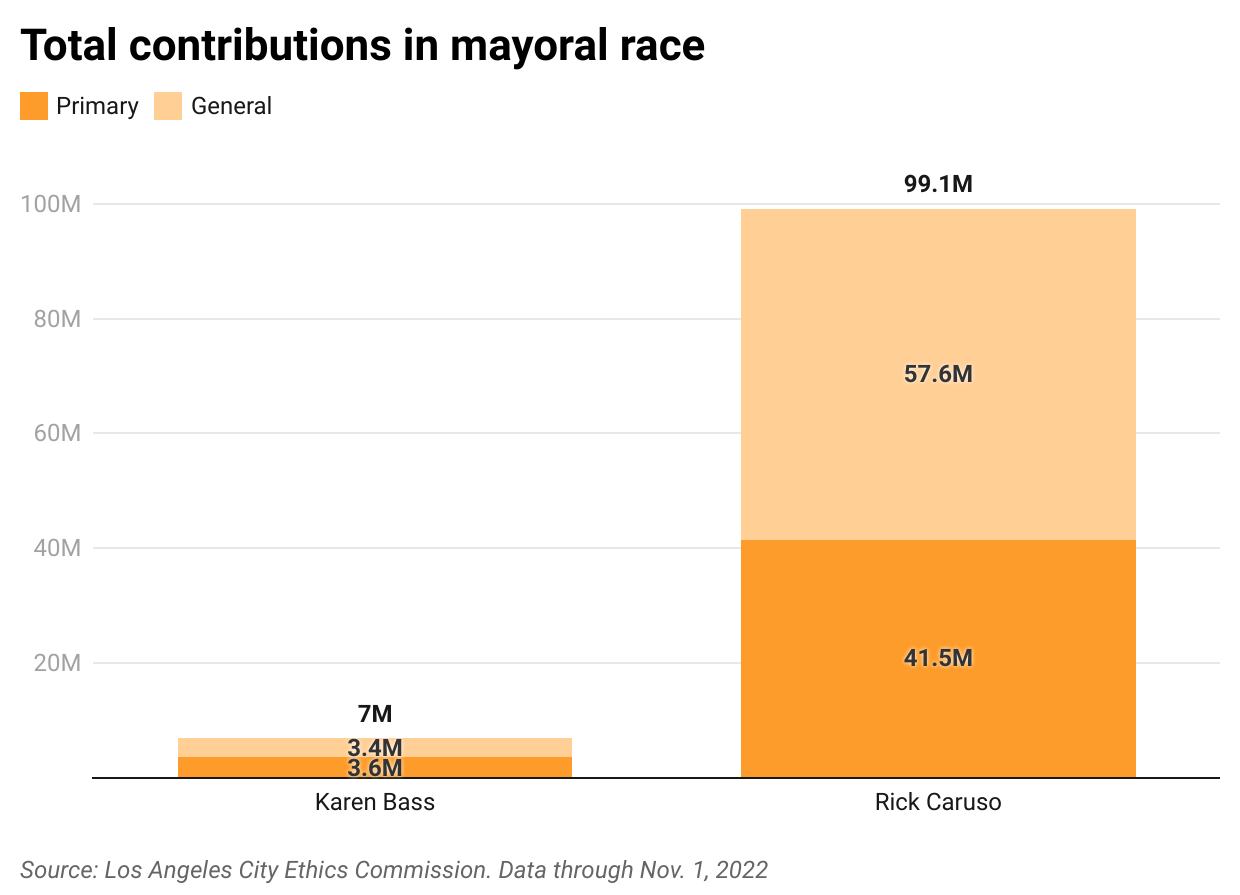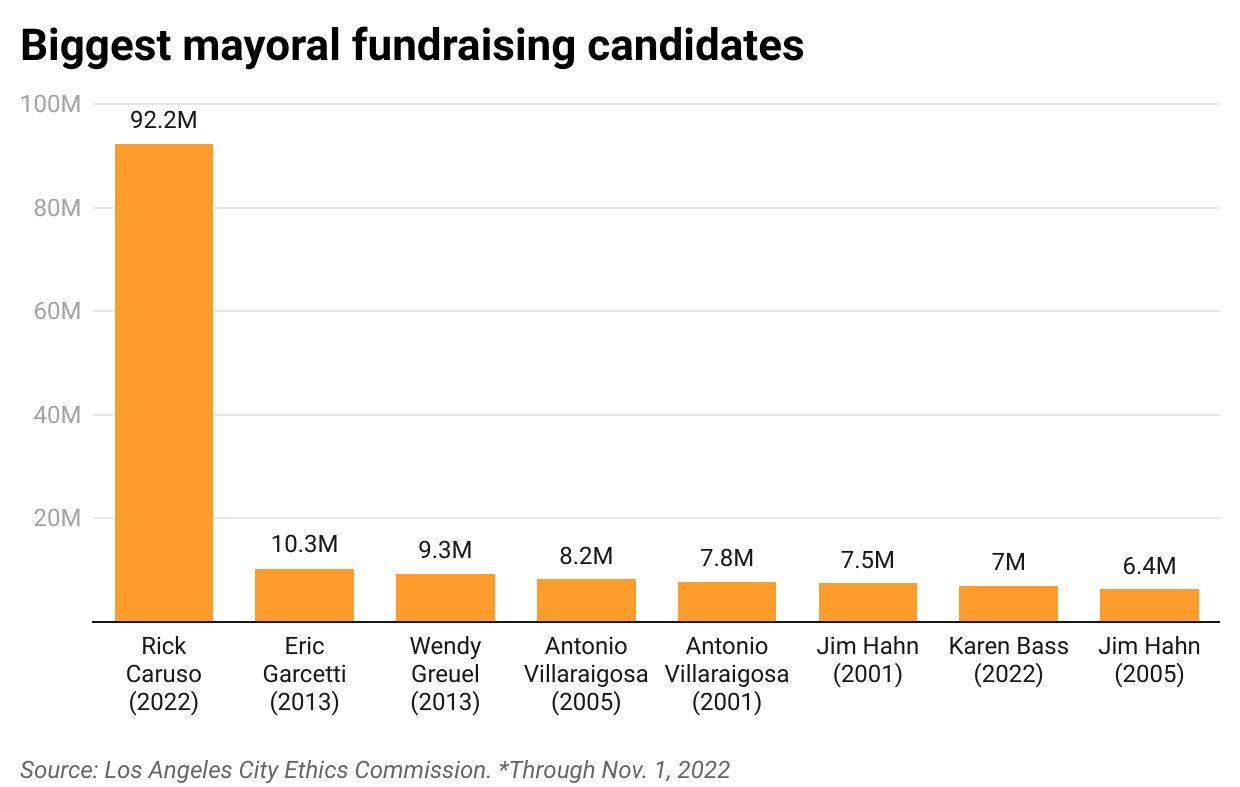Four charts on the mountains of money in the mayor’s race

It’s been a campaign like no other, with more than $100 million spent on television ads, canvassers, billboards and mailers.
If nothing else, the outcome of Tuesday’s election will bring an end to the incessant emails and junk-filled mailboxes. But it will also have set a new bar for what it costs to run a citywide campaign in America’s second-largest city.
The vast majority of the money in this year’s race came from one source: mayoral candidate Rick Caruso’s bank account. Unless other billionaires run for mayor in the future, it’s unlikely that the lofty total will be matched anytime soon. (Billionaire Michael Bloomberg also spent more than $100 million on his successful 2009 New York City mayor’s race run.) But that doesn’t mean campaigns will return to “normal” either.
[More on campaign finance: A look at money raised by District 13 city council candidates]
“Campaigns never get less expensive,” said Dan Schnur, a veteran of four presidential campaigns and currently an adjunct professor at the University of Southern California’s Annenberg School for Communication and Journalism.
It’s also not clear whether the flood of dollars moves the needle effectively. In the primary, Caruso ended up spending an average of $176 for every vote he received. Rep. Karen Bass, who netted more primary votes, spent an average of $11.79.
Caruso has only upped the ante since then. His total spending tops that of Bass by a more than 14-to-1 ratio.

“There won’t always be a candidate of Rick Caruso’s personal wealth seeking office,” said Schnur. “We probably won’t see this level of spending in every single election, but the overall trend is unmistakably and irreversibly upward.”
Writing checks
Though Bass is hopelessly outspent in the race, she does have an advantage: Far more people have donated to her campaign than to Caruso’s. That’s mostly because the developer’s willingness to spend his own money means he hasn’t had to hold the kind of fundraising events that are mainstays of most campaigns.

Bass has also benefited from a total of $5.1 million in independent expenditures supporting her campaign, compared with $0 for Caruso. However, during the primary, there was $3.48 million in independent expenditures against her. (There has been no independent expenditure against her in the general campaign.) Caruso has also attracted plenty of money from outside sources trying to block his candidacy: a total of $4.28 million in independent expenditures opposing him since the start of the campaign.
[Get COVID-19, crime and other stats about where you live with the Crosstown Neighborhood Newsletter]
Donor party
Raising money from the public also means more voters have an actual stake in Bass’s success. She collected 14,227 separate contributions (some of those are from people outside of Los Angeles, and some include donors who gave in both the primary and the general campaigns). Caruso, on the other hand, received 3,101 donations.

A new normal?
Los Angeles might not have another candidate willing to dump $100 million of their own money into the race the next time the mayor’s office is up for grabs. But it’s unlikely the city will ever see a race where the campaign for the top office costs less than $10 million either.
“The losing side always decides that next time they need to spend even more, so these trends are only going to continue to escalate,” said Schnur.
Here’s how this year’s spending totals stack up against past races.

How we did it: We examined fundraising and expenditure data compiled by the Los Angeles City Ethics Commission. Have questions about our data? Or want to know more? Write to us at askus@xtown.la.






